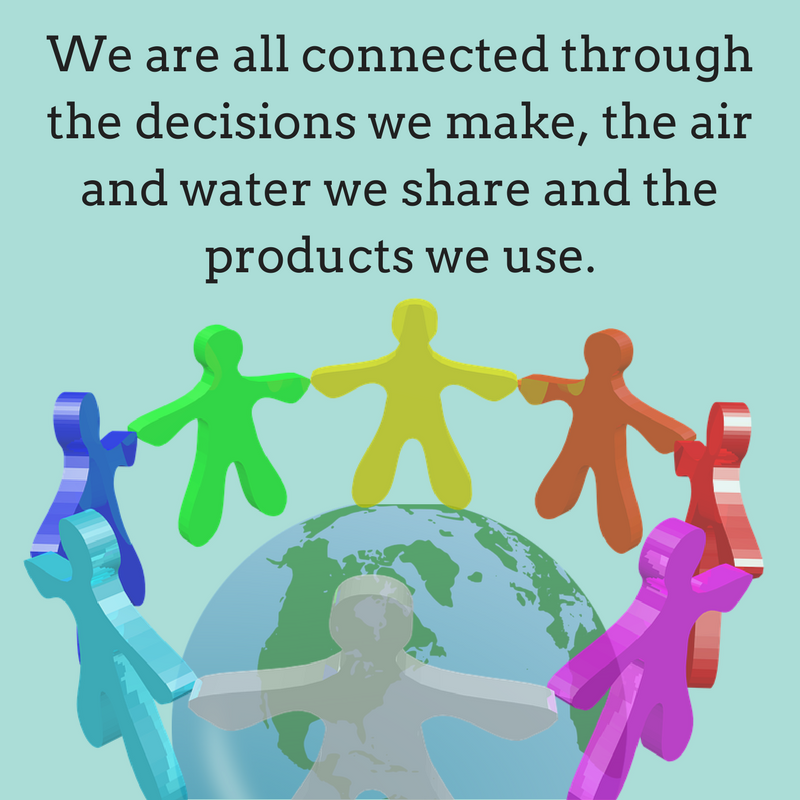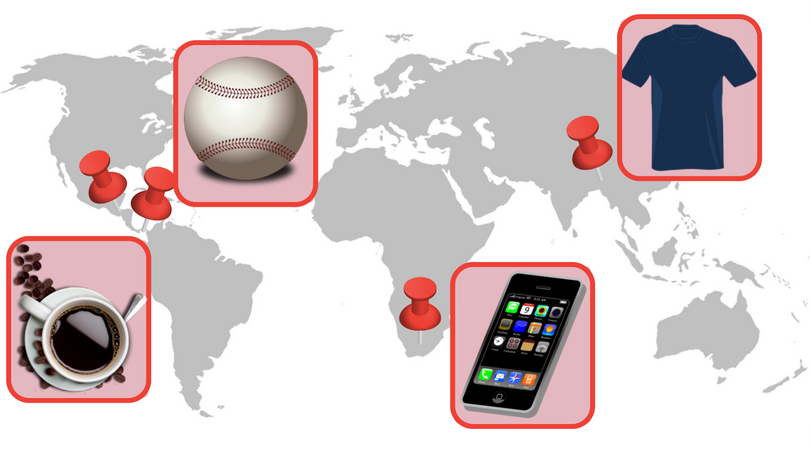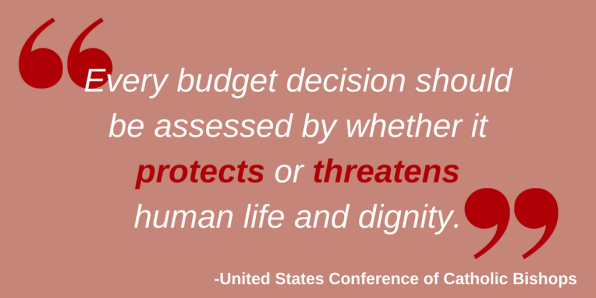“I am saddened by how people treat one another and how we are so shut off from one another and how we judge one another, when the truth is, we are all one connected thing. We are all from the same exact molecules.”
– Ellen DeGeneres
Humanidad.
人性.
Humanité.
الجنس البشري.
Humanity.
Stemming from the Latin word humanitas, humanity refers to all human beings collectively: the human race, humankind.
This same Latin word is the root of humanitarian and humane, both of which connote kindness for one’s fellow human beings.
As of 2017, 7.5 billion humans currently inhabit the earth.
Despite obvious differences of skin color, shape, size and background, we are all connected. Why is this important? Why should we care?
We are all connected through the decisions we make, the air and water we share and the products we use.

How we share the Earth affects people’s lives and livelihoods.
Think about it.
The t-shirt you are wearing was probably sewn by a woman working in inhumane sweatshops for less than a dollar a day in Bangladesh.
The coffee you drank this morning was grown and cultivated by the hands of a man working all day to save his plants from a devastating disease caused by climate change in Guatemala.
The ball used to play America’s greatest pastime is sewn together in a small village in Costa Rica.
The minerals used to create smartphones may be mined by children in Africa.
Even most toothpastes that we use are manufactured south of the border.
We all require each other to exist. We use the labor of people in all different countries to create the products that we use every single day.

No one is in this alone.
Yet every single day, people maintain a mindset of “everyone for themselves” and forget that we are all connected.
This is most often important to remember when decisions are made by the United States government, one of the most powerful nations in the world. Particularly when the budget is crafted for the upcoming year and decisions are made that are going to affect everyone.
In late March, President Trump released the partial outline of his 2018 budget.
The current plan forecasts a $54 billion dollar increase in military and homeland security spending, overall resulting in spending cuts to vital programs that make America great in order to pay for the cost.
Based on the outline, there are going to be budget cuts that severely affect the environment, students, doctors and scientists, mothers, children and more.
If Congress passes the current budget proposal, funding for the environment, NASA, education, health services, the arts, diplomacy and more will be cut 20 to 30 percent in 2018, according to The New York Times.
According to the United States Conference of Catholic Bishops, “every budget decision should be assessed by whether it protects or threatens human life and dignity.”

The proposed budget cuts also eliminate critical funding for major U.S. Foreign Assistance programs that help lift up vulnerable communities all over the globe that are facing unimaginable poverty.
Foreign aid is life-saving assistance used around the world to help those who suffer from hunger and unclean water, the impacts and turmoil of war and/or require emergency humanitarian assistance and so much more.
Poverty-focused development assistance can help children go to school who would have otherwise never been educated. It can change futures and help entire communities reach the first rung on the ladder of sustainability.
Some Americans might be confused as to why we should be spending money on people in other countries when we have people of our own to take care of first.
Most people do not realize that foreign aid only makes up less than 1 percent of the federal budget.
According to Sam Worthington, CEO of InterAction, a nongovernmental organization based in Washington, D.C., that works with the world’s most poor and vulnerable communities, “cuts to U.S. foreign assistance won’t provide any significant fiscal savings. Eliminating agencies tailored to bolster U.S. leadership abroad or reducing our role in international institutions that bear the costs of a global system only weakens America’s ability to lead.”
Yet, by helping others, the United States can help ourselves.
President Ronald Reagan said it best when he stated, “What they can do because of our assistance, we don’t have to do. We should never forget that we aren’t buying friends; we are helping friends. We are helping them open the roads of enterprise and opportunity for their own people, helping them build their own institutions of pluralism and democracy, and helping them defend themselves.”
Cuts cost lives.
Take care of one another.
Love each other.
Remember that real power is using your talents and gifts to put others before yourself.
For we are all connected and we all require the decisions, talents and outlook of others to survive, to thrive, to flourish and to live.
To help save the aid, you can join Catholics Confront Global Poverty to call on our legislators to oppose the Administration’s proposed cuts to poverty-focused international assistance by using this link https://goo.gl/CPVWXw.


